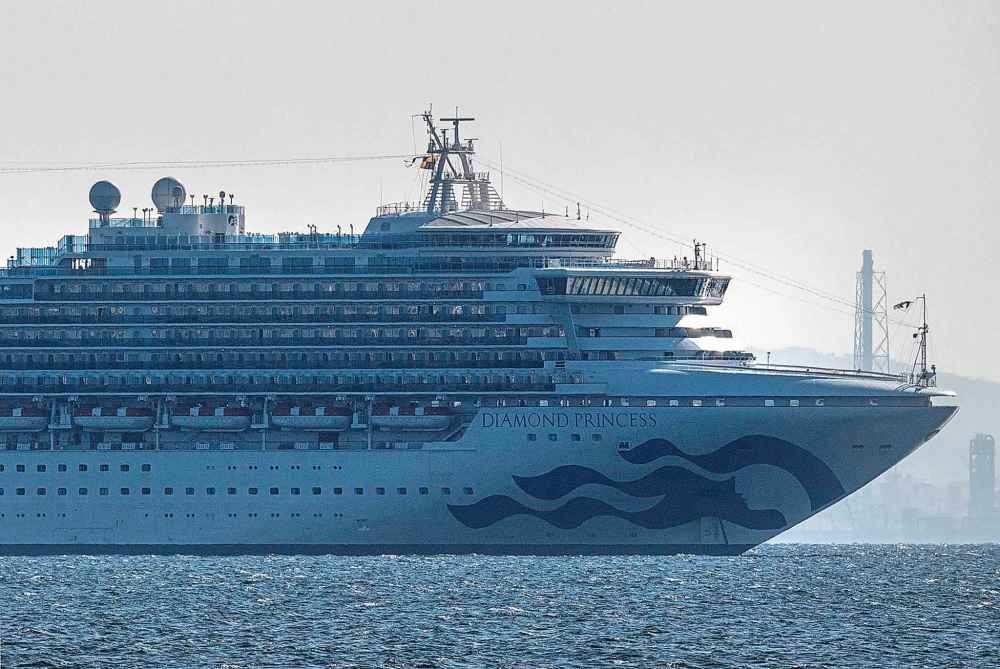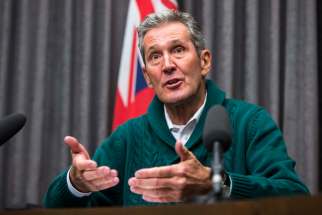Looking inward is not the answer
Read this article for free:
or
Already have an account? Log in here »
To continue reading, please subscribe:
Monthly Digital Subscription
$0 for the first 4 weeks*
- Enjoy unlimited reading on winnipegfreepress.com
- Read the E-Edition, our digital replica newspaper
- Access News Break, our award-winning app
- Play interactive puzzles
*No charge for 4 weeks then price increases to the regular rate of $19.00 plus GST every four weeks. Offer available to new and qualified returning subscribers only. Cancel any time.
Monthly Digital Subscription
$4.75/week*
- Enjoy unlimited reading on winnipegfreepress.com
- Read the E-Edition, our digital replica newspaper
- Access News Break, our award-winning app
- Play interactive puzzles
*Billed as $19 plus GST every four weeks. Cancel any time.
To continue reading, please subscribe:
Add Free Press access to your Brandon Sun subscription for only an additional
$1 for the first 4 weeks*
*Your next subscription payment will increase by $1.00 and you will be charged $16.99 plus GST for four weeks. After four weeks, your payment will increase to $23.99 plus GST every four weeks.
Read unlimited articles for free today:
or
Already have an account? Log in here »
Hey there, time traveller!
This article was published 09/03/2020 (2106 days ago), so information in it may no longer be current.
The people stuck on virus-infected cruise ships are a special case because they are bottled up together, the sick and the healthy alike, and they are at the mercy of others who decide when and where they may go ashore.
The Diamond Princess, where 700 healthy passengers and crew caught COVID-19 infection during the ship’s enforced 14-day quarantine in Yokohama harbour, is the most prominent example. On the basis of that disaster and other cruise-ship viral emergencies, Dr. Theresa Tam, Canada’s chief public health officer, on Monday advised Canadians not to go cruising while the coronavirus threat continues. The U.S. government gave its people the same advice.

In a larger sense, however, we are all in the same boat. Most of the 100,000 people around the world infected by COVID-19 were not cruise passengers. The virus is in circulation in Vancouver and in northwest Washington state. It is probably going to turn up in Winnipeg eventually. Staying off cruise ships is a prudent precaution, but it is no guarantee against infection.
One result of globalization — the increased international distribution of capital and labour — is that overseas travel and transport have massively increased in recent decades. A trade route, however, is also a route for the spread of disease, and faster transport means faster contagion.
A hundred years ago, the Spanish flu, recognized in a military hospital in France in late 1917, first appeared in Canada in the spring of 1918. In the current case, the coronavirus recognized in Wuhan, China in December 2019, was first confirmed in Canada on Jan. 27 in a traveller returning home from Wuhan.
The collapse of stock prices around the world on Monday also dramatized the interdependence of nations. Because Russia refused the oil-production cuts proposed by Saudi Arabia, the Saudis stepped up their production and cut their prices to compel Russian compliance. All world crude oil prices promptly fell, and stock markets around the world dropped so fast that trading was halted temporarily in Toronto and New York.
In this globalized world, China’s virus is everyone’s virus, and Saudi Arabia’s cheap oil is everyone’s cheap oil.
Interdependence is dramatized every day by the steady increase in atmospheric carbon dioxide and the likelihood that planet Earth will consequently become more and more difficult for human habitation. National governments blame each other for causing the problem and make only token gestures to rectify it.
America’s air pollution is everyone’s air pollution — and so is China’s, and so is Canada’s.

Increased interdependence must dictate greater international collaboration. America and Britain have been trying to save themselves from interdependence by turning inward — the U.K. is in the midst of pulling out of the European Union, while the Trump administration in Washington pursues a policy of “America First.” But more than 400 COVID-19 cases have been confirmed in 19 U.S. states and, as of Monday, 19 American patients have died. The U.S. financial economy is being pummelled. Isolationism doesn’t help.
A better solution must be found. America, China and everyone else would benefit from a strengthened World Health Organization able to monitor health conditions around the world. The International Energy Agency, or something like it, should be empowered to discipline oil producing countries so as to avoid the kind of market manipulation that Saudi Arabia is now practising.
Improved international co-operation is essential.














